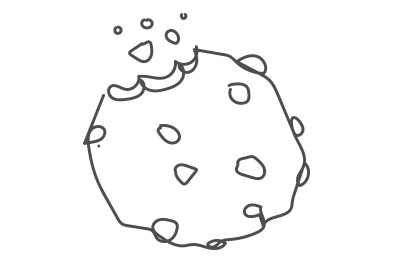RSPB
The largest nature
conservation charity UK
strategy

The story
The RSPB, the largest registered charity in the UK, is committed to promoting the conservation and protection of birds and their habitats. Its mission also extends to wider environmental initiatives, achieved through awareness campaigns and the management of nature reserves, not limited to the United Kingdom.
Emily Williamson founded the RSPB in 1889 to safeguard birds threatened with extinction by the fashion industry’s demand for exotic bird feathers. Since then, the organisation has continued to champion bird conservation efforts, supporting research, launching large-scale nature conservation projects, inspiring others to preserve nature, and advocating for environmental legislation.
Needs of the organisation
![]() Increase paid membership by changing RSPB’s name.
Increase paid membership by changing RSPB’s name.
Fulfilment
![]() It was advised not to change the name.
It was advised not to change the name.
Strategic direction
In 2012, the RSPB decided to update its brand identity to increase public support and membership scheme to allow the organization to do more for nature preservation, in response to news that 60% of the wildlife species studied have declined over recent decades.
The RSPB representative stated that the organization needed to change people’s perceptions of who they are and what they do, to gain even more support for saving nature. The new logo and strapline were just a small part of how they planned to achieve this, they said.
During the rebranding process, Jozef, the Communication Design Studio founder, worked with the charity as a graphic designer and marketing assistant. He opened up a forum on the RSPB intranet and explained why it was essential not to change the name. He believed that preserving the RSPB brand, including its name, which reaches back to 1889, was vital to stay consistent with the preservation character of the organization.
Jozef also pointed out that if they changed the charity’s name to cover nature as a whole, they could lose their distinctiveness on the market and potentially threaten the RSPB’s existence by already well established organisations such as The Wildlife Trusts, Woodland Trust, Natural Resources Defense Council and World Wide Fund for Nature (WWF) covering the nature as a whole.
Instead, Jozef suggested different strategies to increase public support and protect natural heritage for future generations.
Jozef’s statement on the organization’s intranet had over 2,000 impressions and massive support from the employees to preserve the charity’s name and heritage.
In the end the RSPB decided to not change the name.
Moreover, the name of the charity and its history became one of the main focal points on the RSPB website’s ‘About’ section.
Brand Identity
![]() Name development
Name development![]() Logo
Logo![]() Colors
Colors![]() Fonts
Fonts![]() Imagery/photographs
Imagery/photographs![]() Tone of voice
Tone of voice![]() Keywords
Keywords![]() Tagline
Tagline![]() Brand positioning
Brand positioning![]() Strategy
Strategy
Applied on
![]() Business cards
Business cards![]() Letterheads
Letterheads![]() Email signatures
Email signatures![]() Reports
Reports![]() Posters
Posters![]() Brochures
Brochures![]() Banners
Banners![]() Social media
Social media![]() Campaigns
Campaigns![]() Websites
Websites
Website design
![]() Website development
Website development![]() Hosting for websites
Hosting for websites![]() Custom emails
Custom emails![]() Enhanced security
Enhanced security![]() Back ups
Back ups![]() Technical support
Technical support
![]() Enhanced performance and UX (User Experience)
Enhanced performance and UX (User Experience)
![]() WPO (Web Performance Optimisation)
WPO (Web Performance Optimisation)
![]() SEO (Search Engine Optimisation)
SEO (Search Engine Optimisation)
![]() CDN (Content Delivery Network) improving WPO and SEO
CDN (Content Delivery Network) improving WPO and SEO
![]() Low carbon emissions websites
Low carbon emissions websites
![]() Landing pages (campaigns) design
Landing pages (campaigns) design
![]() Analytics
Analytics
![]() WordPress CMS (Content Management System)
WordPress CMS (Content Management System)
Communication Design Studio (Palguta) is a registered sole proprietorship in Norway number 926 834 789



